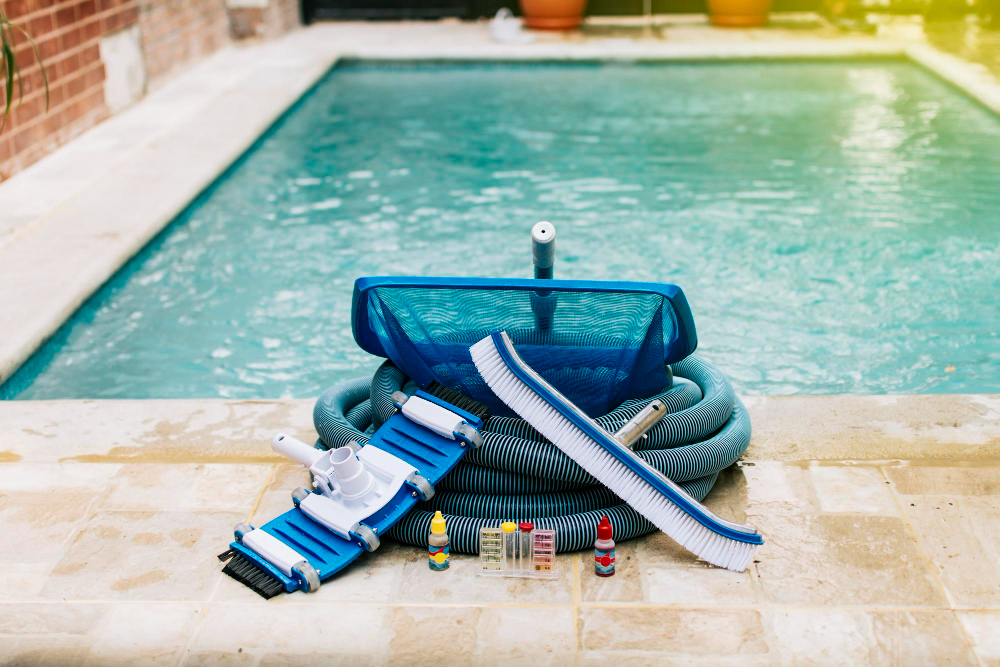
Your backyard pool is a shimmering oasis, a space for relaxation, fitness, and family fun. However, beneath the serene surface, there's an intricate system at work. Regular swimming pool inspections are a critical part of ensuring that your aquatic retreat operates safely, efficiently, and without any unexpected hiccups. This comprehensive guide will outline why staying updated with pool inspections is not just responsible—it's your passport to hassle-free pool enjoyment.
Why Regular Swimming Pool Inspections are Crucial
A well-maintained pool is a safe and inviting space, but the complex interplay of components makes it just as vulnerable to wear and tear as any other part of your home. When you schedule regular inspections, you're not merely ticking off a maintenance checklist; you're making an informed investment in your property and your peace of mind.
Safety Comes First
Pool safety should always be paramount. Regular inspections ensure all safety features, from anti-entrapment devices to secure fencing, are functioning correctly as per the SOPs and are within the legal compliance of the local authorities.
Preserve Your Investment
From the surface to the infrastructure, a pool is a considerable financial commitment. Regular inspections help you catch minor issues before they evolve into expensive repairs.
Enjoy Uninterrupted Fun
A malfunctioning pool can be a big buzzkill. Inspections help detect problems early, preventing the unpleasant surprise of a non-operational pool during your prime swimming season.
Signs Your Pool Needs Inspection
How do you know when it's time to get your pool checked? Look out for these indicators:
Unexplained Water Loss
If your pool is losing more water than regular evaporation accounts for, there could be a leak.
Irregular Water Quality
Persistent issues such as unbalanced pH levels or excessive algae growth might signify a deeper problem with your pool's systems.
Mechanical Noises
Strange sounds from your pump or filter are often the first signs of equipment trouble.
DIY vs. Professional Inspection
While minor checks can be performed by pool owners, certain aspects require the expertise of a professional:
DIY Inspections
- Regularly checking for visible leaks around the pool and equipment.
- Monitoring water levels and visibly checking for noticeable changes in cleanliness.
Professional Inspections
- Conducting leak detection through pressure tests or dye tests.
- Inspecting complex systems like the pool heater, diving boards, and slides for safety and operation.
Frequency of Pool Inspections
The frequency of your pool inspections will depend on various factors, including:
Seasonal Shifts
Pools in colder climates may require less frequent inspections during the off-season.
Intensive Use
A pool that sees heavy use may need more regular check-ups to keep up with wear and tear.
Age of the Pool
Older pools tend to develop more issues and may require more frequent inspections to prevent setbacks.
The Inspection Process: What to Expect
What should you and your pool professional keep an eye on during an inspection?
Structural Integrity
- Checking the pool's shell for cracks and potential leaks.
- Ensuring the deck material is secure and in good condition.
Mechanical System
- Inspecting the pump and filter for proper operation and signs of wear.
- Verifying the sanitation system's effectiveness and safety standards.
Safety Components
- Checking that the pool's perimeter fence and gates are secure and compliant.
- Inspecting all alarms and safety covers for functionality.
The Invisible Threats
Some of the most serious pool issues are those you can't see until it's too late:
Electrical Malfunctions
Faulty wiring or malfunctioning pool lights can cause electrical hazards.
Hidden Leaks
Underground plumbing leaks can lead to substantial water loss and damage if left unchecked.
Structural Deterioration
Slow-acting but significant problems like erosion or soil shifting can compromise your pool's integrity.
The Role of Inspections in Insurance Claims
Understanding and documenting the results of your pool inspections is crucial if you ever need to make an insurance claim. It can be the difference between a swift reimbursement and a claim that's denied.
Exclusive Maintenance Deals: Are They Worth It?
When purchasing a pool, you may be offered a maintenance package. Consider these before you overlook the offer:
The Cost-Benefit Analysis
Calculate the lifetime cost of maintenance and compare it to the deal you're offered.
The Fine Print
Understand what's included in the package and if it covers all the necessary services your pool might need.
Top 5 Pool Issues Regular Inspections Will Help You Avoid
- Deteriorating safety features
- Ineffective sanitization
- Equipment failure
- Structural damage
- Liability risks
In Summary: The Proactive Pool Owner's Approach
Regular swimming pool inspections are the cornerstone of responsible pool ownership. They keep your pool safe, your investment secure, and your sunny days free from the shadows of unexpected pool problems. Remember, scheduling inspections isn’t just about what you see—it’s about the issues you don’t see that could be lurking just beneath the surface.
So, whether you're in the sweltering heat of Jacksonville, FL, or the frozen tundra of Montreal, QC, make sure your pool is on the regular inspection list, and be sure to join the countless pool owners who've discovered the savvy joy of being proactive about pool maintenance. If you need help with pool repair in Jacksonville, FL, contact All Phase Pool Remodeling today for free estimates.